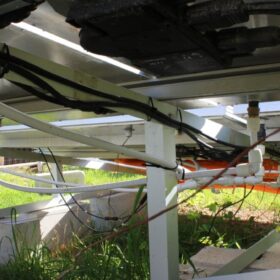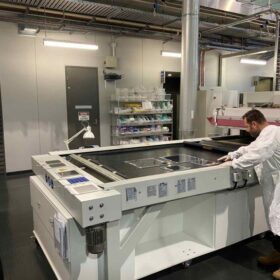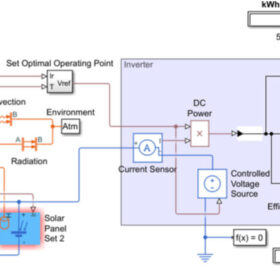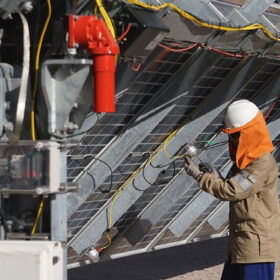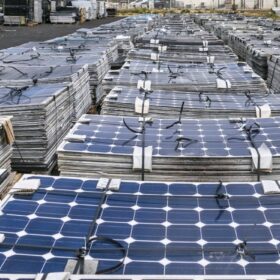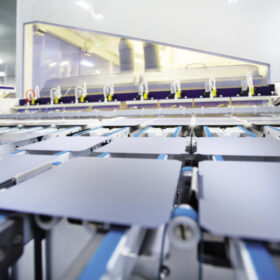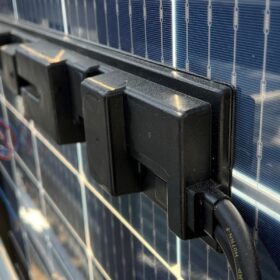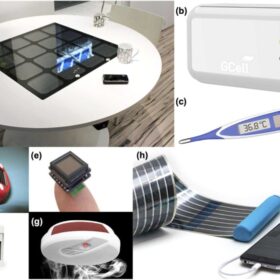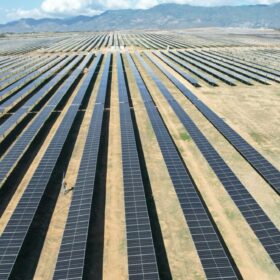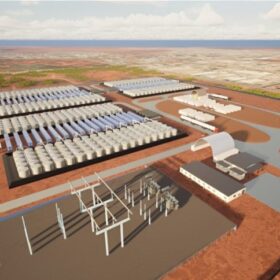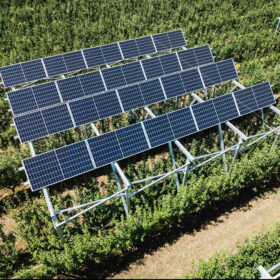PV module cooling tech tipped to boost net electrical energy
Scientists in Europe have created an after-market cooling solution that can be fitted to existing standard PV modules. The system is based on a water chamber placed at the backside of the module and can reportedly provide a net electrical energy gain of more than 9%.
UNSW team sheds new light on solar cell efficiency
A team of researchers from the University of New South Wales is confident it can get silicon solar cells to a power conversion efficiency above 30% by integrating a process that splits particles of light, or photons, into two smaller energy chunks.
New model to identify optimal power sizing ratio for solar inverters
Researchers in Malaysia have proposed a new approach to identify the optimal power sizing ratio to balance PV energy capture with inverter costs. The calibrated model is said to accurately reflect the relationship between inverter efficiency and real-world system behavior.
Long-term look at albedo tipped to pay off over project lifetime
As bifacial modules proliferate, estimations of albedo are becoming more important and with developers not prepared to install weather stations to assess solar resource, a popular option has become third-party, on-site measurements over periods as short as a day. Is this an acceptable compromise between costly on-site measuring and less accurate satellite data? Everoze’s Stefan Mau discusses the potential benefits and limitations of this approach.
Critical mineral report highlights Australia’s solar panel recycling potential
A new report published by the CSIRO says Australia’s research into solar recycling is second in the world, outside China, but suggests the establishment of mid-stream activities such as the production of metallurgical silicon and polysilicon have big potential.
Bigger is better as module makers power ahead
Larger wafer and module sizes have had a profound influence on module power output in recent years but standardisation appears to have taken hold, with no further increases evident in module data, according to Molly Morgan, a senior research analyst at Exawatt, which is now part of the CRU Group.
Researchers develop ‘communicative’ PV panels
A German research team is conducting practical tests to see how solar modules with integrated radio technology can be linked to form an overall network. The “communicative” panels should represent a simple and cost-effective solution for monitoring and controlling small-scale photovoltaic systems.
All indoor PV technologies at a glance
A review of indoor PV cell technologies by an international research team delves into recent progress, characterisation, and design strategies used to develop highly efficient cells. The study presents 250 commercial and laboratory devices, as well as applications and performance reporting.
Bifacial PV, single-axis tracking produces cheapest electricity, says IEA-PVPS
The IEA Photovoltaic Power Systems Programme’s (IEA-PVPS) latest factsheet covers bifacial PV modules and advanced tracking systems. It says a combination of bifacial modules with single-axis tracking could increase energy output by up to 35%.
UNSW researchers eye redesigned panel as part of recycling plans
Researchers at the University of New South Wales will look to develop a redesigned PV panel that allows for easier recycling having secured $5 million in federal government funding to help transform Australia’s solar panel recycling industry.
